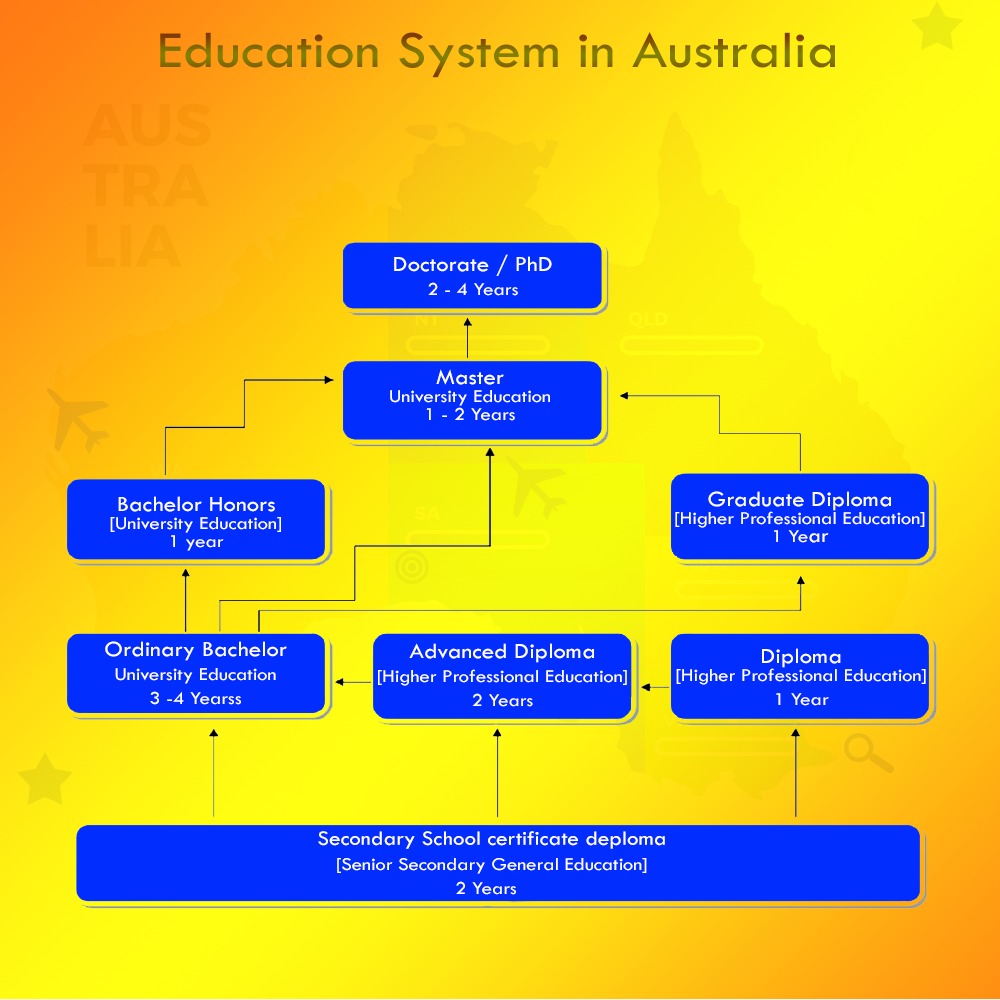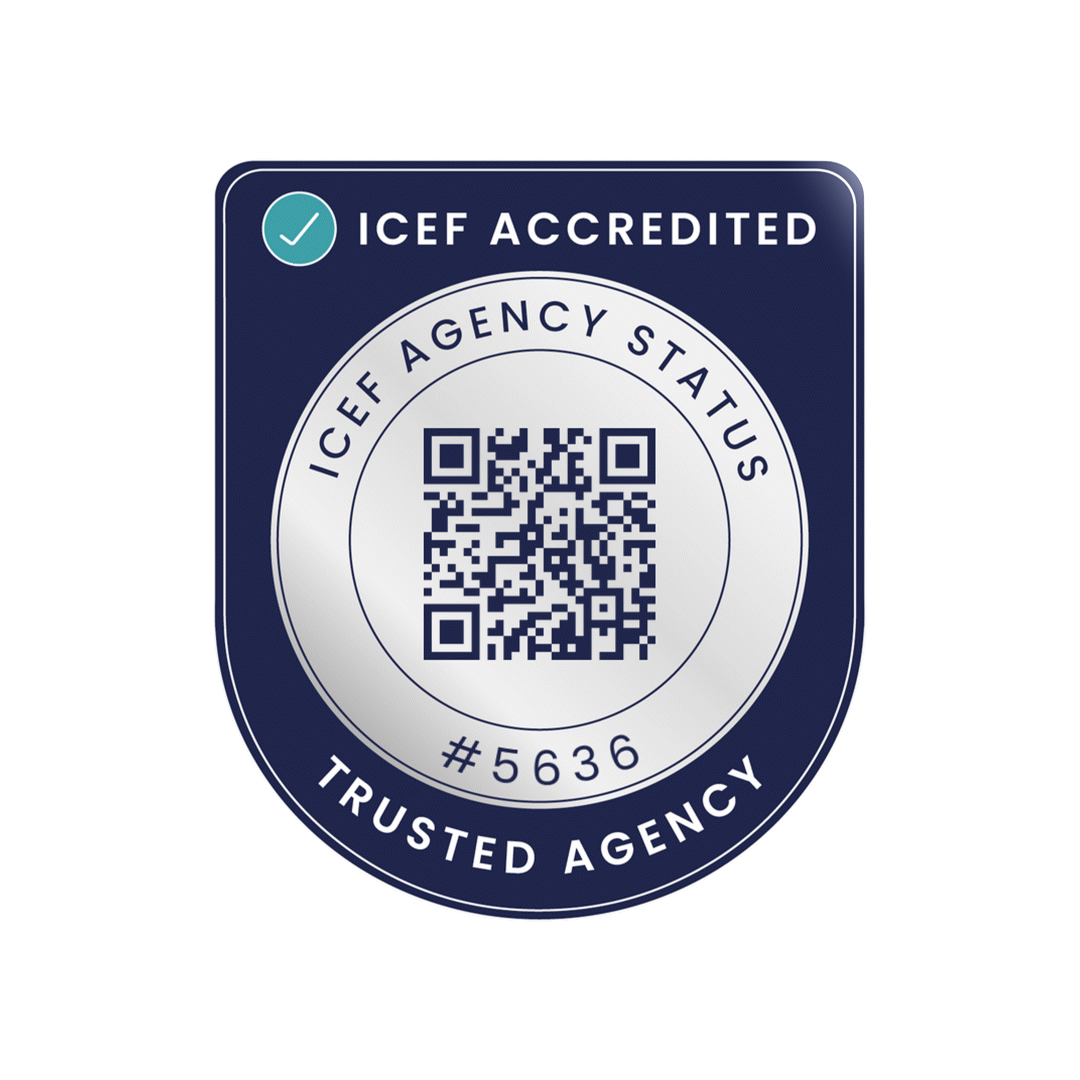Quick Enquiry
Australia is currently the third most popular destination for international students in the English speaking world. Students choose to study there because of high quality of education. the cultural diversity and friendly natives. Australian Educational system is carefully regulated by the government in order to maintain the high standards of education associated with the country.
Facts About Australia
- Name : The Commonwealth of Australia
- Official Language : English.
- Currency : Australian Dollars.
- Capital : Canberra.
- Australian Population : 25,940,200 ( 2020 est.).
- Religion : Christianity (43.9%), No religion (38.9%), Islam (3.2%), Hinduism (2.7%), Buddism (2.7%), Others (9.8%).
Why Study in Australia
- English-speaking world behind the united states and the UK.
- Australia's standard of living is amongst the highest in the world.
- Living expenses and tuition costs are considerably lower.
- International students are able to work part time while studying.
- Scholarships, which helps to lower the cost of studying for international students.
- Institutions in Australia offer a wide variety of courses and degrees.
- It is easy for students to move between one qualification level and form one institution to another.
- Australia is at the forefront of new technology and innovations.
- Students in Australia can take advantage of the country's impressive technology and resources.
- Australia is always open to hiring students who graduate from their universities because they are trained to be work-ready and hence, job opportunities are available widely in public and private spheres.
- Australia offers an added advantage of offering scholarships to students with CGPA starting from 3.6.
Australian Education System
- Institutes of Technology / Australian Technology Network.
- TAFE : Technical and Further Education.
- Private Colleges
- Group of 8 universities.
- Public universities.
- Private universities.

Tuition Fees & Living Cost
The Australian Government estimates general living expenses to be $21,041 per year. A survey of our International Students revealed most spent between $20,000 and $27,000 per year (depending on living arrangements and personal choices ).
Sectors | Bigger Cities (Sydney, Melbourne) | Other Cities (Adelaide,Brisbane) |
Renting | $700(avg shared rent) | $400(avg shared rent) |
Travel Expenses | $160 | $100 |
Food Expenses | $150 | $150 |
Mobile Services | $30 | $30 |
Health Services | $100 | $100 |
TOTAL per Month | $1140 | $780 |
Intakes
- September Intake
- July Intake
( Few universities offering multiple intakes in September & November.)
Documents Required for Admission
- Completely filled application form.
- TOEFL / IELTS / PTE exam score Xerox.
- Academic certificates (SSLC, Inter, Bachelor's etc.)
- Photo copies of first and last pages of your passport.
- Job experience certificates ( if available )
- Medium of Instruction ( MOI ).
- Any other Documents.
Work Rights and Stay Back
- Students will be able to work before their course of study commences. They will also be able to work more than 40 hours a fortnight in any sector of the economy.
- Australia allows international students to stay back for an additional 2 years after completing their Bachelor's or Master's Degree.
How to Apply for Australian Student Visa
The Australian Government provides an opportunity to all students to study in the country but as a prerequisite, you'll have to obtain a student visa first. The visa you need will depend on your age, the type of study you want to pursue, and how long you want to stay in Australia. As an international student , you would most commonly require a student ( subclass 500 ) visa, regardless of your field of study.
Coming into effect since July 1, 2016, a student subclass 500 visa lets you stay in Australia for the duration of your study program, which is mostly up to five years and in line with your enrolment date. For a smooth stay, you need to ensure that your visa remains valid and you abide by the conditions as mentioned on your student visa.
Checklist For Australian Student visa
When applying for your student visa for Australia, you will generally need:
- Proof of enrolment ( your electronic confirmation of enrolment ).
- A Valid passport.
- Your visa application fees.
- Your genuine temporary entrant ( GTE ) statement.
- Academic and work experience documents.
- Evidence of financial ability ( tuition fees, living expenses, expenses for dependents, return airfare ).
- Details of your health insurance policy ( Overseas Student Health Cover ).
- Evidence of your English proficiency Skills ( such as IELTS test scores ).
- Statement of purpose.
- Passport-sized photographs.
